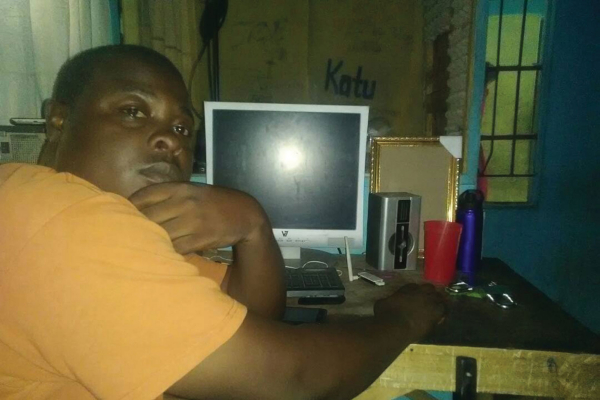
DARKNESS filled the small backyard room and one of the teenage dancehall artistes anticipated the immediate return of electricity to the studio — made of cheap material including egg crates stuck to the door of the tiny booth.
BY JAIROS SAUNYAMA
Together with a foam rubber, the crates act as sound proof. There are zinc sheets that trap heat, increasing the temperature inside the room, and a standby fan coated with dust lies by the corner.
Icey B (real name Brian Roters) sat before a wooden table with a big monitor — his most valuable gadget.
The 27-year-old producer based at Cross Business Centre — popularly known as PaCross — in Murewa West, told NewsDay Weekender it was not difficult to set up his studio, Acceleration Records, in the rural outpost.
“There is a lot of talent in the rural areas and I thought it wise to set up my music studio in this area so that the youths would record their music here rather than go to Harare, which is expensive to them,” Icey B said.
Icey B travels from Guvheya village, about 3km away, to his studio which offers hope to many village youngsters eager to break into mainstream music. Icey B has become a hero to many of these youth.
“I charge a small fee which is affordable to these youths. I do digital music and I charge as little as $5 per track just to put vocals if one brings their own beat.” If the musician wants me to do both the beat and vocals, it is just $10 per track. These are the charges for zimdancehall artistes, but those who do contemporary music, it’s $15 per track. I do not do sungura since I am still securing instruments,” he said.
- Chamisa under fire over US$120K donation
- Mavhunga puts DeMbare into Chibuku quarterfinals
- Pension funds bet on Cabora Bassa oilfields
- Councils defy govt fire tender directive
Keep Reading
In Harare and other towns and cities, an artiste forks out an average of $100 to record a single track.
Icey B, who is also a musician, said he had recorded over 60 artistes from Murewa and surrounding areas since opening the studio two years ago.
These are Goromonzi-based Jerusarema ensemble Ngoma Dzepasi, Fire Lady (Tanyaradzwa Rota), Dandaro Arts Unlimited and RC Masawi.
Fire Lady is a Grade 6 pupil at Rota Primary School and has been doing wonders at functions in Mashonaland East and Harare provinces through her scintillating dancehall tracks.
“It is a matter of time. I am confident that one day this studio will be home to a number of big names. I am in the process of building it and with limited resources I will get there. My dream is to establish another studio in Harare,” said Icey B.
The producer said he needed to purchase studio monitors, professional microphones, midi keyboards and a mixer.
Zimdancehall artiste Richman (Richard Chabikwa) from Chitsa village said Icey B’s recording studio came at the right time as most youths in the area now have a place to record their music.
“I have done a number of tracks but they are just doing rounds on social media in our hood. I have a relative in Harare who promised to take my music to radio stations, I am confident that my music is good. For now I will continue recording music with Icey B,” Richman said.
After losing his job as a shopkeeper in Mutoko, Icey B armed himself with his laptop and started recording music in the village. He was assisted by Ngoni Zindoga in Mbare who taught him the basics of how to record good music.
Icey B challenged local radio stations to consider his artistes.
“We need to be recognised, there are talented artistes this side, but they are not recognised. The best musician should get airplay. In Zimbabwe good music is not being played,” he said.
For now, as the producer waits for power to return, more youths especially from the nearby Chemhondoro Secondary School fill the studio to have their turn in the booth.
Although most of the music is played within a confined area, it is the zeal of inscribing their names on the board in the studio that many would not want to miss.











